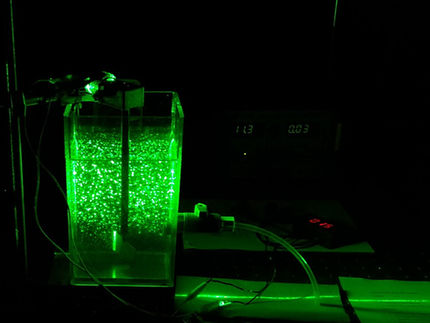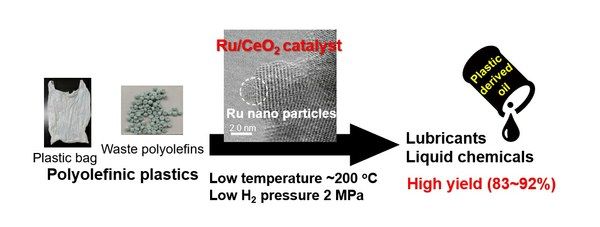Cilantro, that favorite salsa ingredient, purifies drinking water
Advertisement
Hints that a favorite ingredient in Mexican, Southeast Asian and other spicy cuisine may be an inexpensive new way of purifying drinking water are on the menu at the 246th National Meeting & Exposition of the American Chemical Society, the world's largest scientific society.
Reporting on research done by undergraduate students at a community college, Douglas Schauer, Ph.D., said that cilantro — also known as coriander and Thai parsley — shows promise as a much-needed new "biosorbent" for removing lead and other potentially toxic heavy metals from contaminated water.
"Cilantro may seem too pricey for use in decontaminating large amounts of water for drinking and cooking," Schauer said. "However, cilantro grows wild in vast amounts in countries that have problems with heavy-metal water pollution. It is readily available, inexpensive and shows promise in removing certain metals, such as lead, copper and mercury, that can be harmful to human health."
Conventional methods for removing heavy metals from water such as treatment with activated carbon (used in the filters in home water purification pitchers) or more advanced technology like ion-exchange resins are very effective. However, they can be too expensive for use in developing countries, especially in rural areas. The need for lower-cost, sustainable alternatives has fostered research on biosorbents. These natural materials, which range from microbes to plants, latch on to heavy metals in ways that include both absorption and adsorption.
"Our goal is to find biosorbents that people in developing countries could obtain for nothing," Schauer explained. "When the filter in a water purification pitcher needs to be changed, they could go outside, gather a handful of cilantro or some other plant, and presto, there's a new filter ready to purify the water."
Most read news
Other news from the department science

Get the chemical industry in your inbox
By submitting this form you agree that LUMITOS AG will send you the newsletter(s) selected above by email. Your data will not be passed on to third parties. Your data will be stored and processed in accordance with our data protection regulations. LUMITOS may contact you by email for the purpose of advertising or market and opinion surveys. You can revoke your consent at any time without giving reasons to LUMITOS AG, Ernst-Augustin-Str. 2, 12489 Berlin, Germany or by e-mail at revoke@lumitos.com with effect for the future. In addition, each email contains a link to unsubscribe from the corresponding newsletter.





























































